#twelve tribes of israel
Text
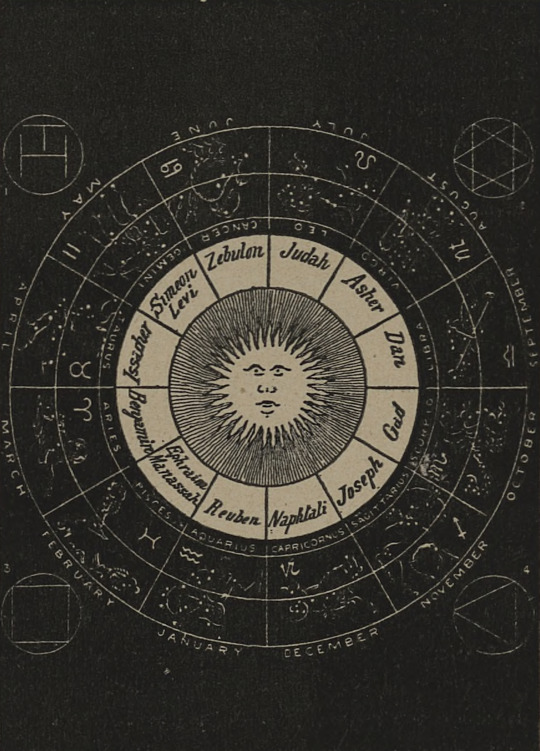
The Zodiac and the twelves sons of Jacob. La lumière d'Egypte ou la science des astres & de l'âme. 1899.
Internet Archive
#sun face#diagram#astrology#twelve tribes of israel#twelve sons of jacob#circles#black background#nemfrog#1899#19th century
1K notes
·
View notes
Photo

Moses Blesses the Twelve Tribes...
1 Moses, the man of God, gave this blessing to the Israelites before he died. 2 He said:
“The Lord came from Mount Sinai.
He rose like the sun from Edom.
He showed his greatness from Mount Paran.
He came with thousands of angels.
He came from the southern mountains.
3
The Lord surely loves his people.
He takes care of all those who belong to him.
They bow down at his feet.
And they are taught by him.
4
Moses gave us the teachings.
They belong to the people of Jacob.
5
The Lord became king of Israel.
The leaders of the people gathered then.
The tribes of Israel came together.
6
“Let the people of Reuben live and not die.
But let the people be few.”
7 Moses said this about the people of Judah:
“Lord, listen to Judah’s prayer.
Bring them back to their people.
They defend themselves with their hands.
Help them fight their enemies!”
8 Moses said this about the people of Levi:
“Lord, your Thummim and Urim belong
to Levi whom you love.
Lord, you tested him at Massah.
You argued with him at the waters of Meribah.
9
He said about his father and mother,
‘I don’t care about them.’
He did not recognize his brothers.
He did not know his children.
But he protected your word.
And he guarded your agreement.
10
He teaches your laws to the people of Jacob
and your teachings to the people of Israel.
He burns incense before you.
And he makes whole burnt offerings on your altar.
11
Lord, make them strong.
Be pleased with the work they do.
Defeat those who attack them.
Don’t let their enemies rise up again.”
12 Moses said this about the people of Benjamin:
“The Lord’s loved ones will lie down in safety.
The Lord protects them all day long.
The ones the Lord loves rest with him.”
13 Moses said this about the people of Joseph:
“May the Lord bless their land with the best fruits.
Send rain from heaven above.
And bring the water from the springs below.
14
Let the sun produce the best fruits.
Let each month bring its best fruits.
15
Let the old mountains give the finest crops.
And let the everlasting hills give the best fruits.
16
Let the full earth give the best fruits.
Let the Lord who lived in the burning bush be pleased.
May these blessings rest on the head of Joseph.
May they rest on the forehead of the one who was separated from his brothers.
17
Joseph has the majesty of a firstborn bull.
He is as strong as a wild ox.
He will stab other nations,
even those nations far away.
These are the ten thousands of Ephraim.
And these are the thousands of Manasseh.”
18 Moses said this about the people of Zebulun:
“Be happy when you go out, Zebulun.
And be happy in your tents, Issachar.
19
They will call the people to the mountain.
And there they will offer the right sacrifices.
They will do well from all that is in the sea.
And they will do well from the treasures hidden in the sand on the shore.”
20 Moses said this about the people of Gad:
“Praise God who gives Gad more land!
Gad lives there like a lion.
He tears off arms and heads.
21
They chose the best land for themselves.
They received a large share, like that given to an officer.
When the leaders of the people gathered,
the people of Gad did what the Lord said was right.
And they judged Israel fairly.”
22 Moses said this about the people of Dan:
“Dan is like a lion’s cub,
who jumps out of Bashan.”
23 Moses said this about the people of Naphtali:
“Naphtali enjoys the Lord’s special kindnesses.
They are full of his blessings.
Their land goes south to Lake Galilee.”
24 Moses said this about the people of Asher:
“Asher is the most blessed of the sons.
He should be his brothers’ favorite.
Let him bathe his feet in olive oil.
25
Your gates will have locks of iron and bronze.
You will be strong as long as you live.
26
“There is no one like the God of Israel.
He rides through the skies to help you.
He rides on the clouds in his majesty.
27
The everlasting God is your place of safety.
His arms will hold you up forever.
He will force your enemy out ahead of you.
He will say, ‘Destroy the enemy!’
28
The people of Israel will lie down in safety.
Jacob’s spring is theirs alone.
Theirs is a land full of grain and wine.
There the skies drop their dew.
29
Israel, you are blessed!
No one else is like you.
You are a people saved by the Lord.
He is your shield and helper.
He is your glorious sword.
Your enemies will be afraid of you.
You will walk all over their holy places.”
— Deuteronomy 33 | International Children’s Bible (ICB)
The Holy Bible, International Children’s Bible® Copyright© 1986, 1988, 1999, 2015 by Thomas Nelson.
Cross References: Genesis 15:1; Genesis 27:4; Genesis 27:27-28; Genesis 27:37; Genesis 30:18; Genesis 37:8; Genesis 49:3-4; Genesis 49:8-9; Genesis 49:13; Genesis 49:19; Genesis 49:20-21; Genesis 49:26; Exodus 8:10; Exodus 17:7; Exodus 28:12; Leviticus 10:11; Numbers 23:21-22; Numbers 32:1; Deuteronomy 4:40; Deuteronomy 32:47; 1 Samuel 2:1; Job 29:6; Job 37:1; Psalm 55:19; Matthew 10:37; Matthew 23:2; John 7:19; Acts 7:53
#Moses#blessing#Twelve Tribes of Israel#Deuteronomy 33#Book of Deuteronomy#Old Testament#ICB#International Children’s Bible#Thomas Nelson
2 notes
·
View notes
Text
Deuteronomy Chapter 33
This chapter is about Moses blessing the tribes. Ok, so Moses' actual death is in the next chapter. Sorry for the confusion. Hope y'all enjoy.
This chapter is about Moses blessing the tribes. Ok, so Moses’ actual death is in the next chapter. Sorry for the confusion. Hope y’all enjoy.
This is the blessing that Moses gave the Israelites before his actual death. Here we go.
God came from Sinai & dawned over them from Seir. He shone forth from Mount Paran. He came with myriads of holy ones from the South, from His mountain slopes. Surely…
View On WordPress
#Asher#Bashan#Benjamin#Dan#Deuteronomy 33#Gad#Israelites#Issachar#Jacob#Jeshurun#Joseph#Judah#Massah#Meribah#Moses#Mount Paran#Nephtali#Old Testament#Reuben#Seir#Sinai#Tanakh#Thummim#Torah#Twelve Tribes of Israel#Urim#Zebulun
0 notes
Text
Exodus 24: The Israelites Agree to Submit and Obey God's Covenant He Made with Them
1 Then the Lord said to Moses, “Come up to the Lord, you and Aaron, Nadab and Abihu, and seventy of the elders of Israel. You are to worship at a distance,
2 but Moses alone is to approach the Lord; the others must not come near. And the people may not come up with him.”
3 When Moses went and told the people all the Lord’s words and laws, they responded with one voice, “Everything the Lord has said we will do.”
4 Moses then wrote down everything the Lord had said.
He got up early the next morning and built an altar at the foot of the mountain and set up twelve stone pillars representing the twelve tribes of Israel.
5 Then he sent young Israelite men, and they offered burnt offerings and sacrificed young bulls as fellowship offerings to the Lord.
6 Moses took half of the blood and put it in bowls, and the other half he splashed against the altar.
7 Then he took the Book of the Covenant and read it to the people. They responded, “We will do everything the Lord has said; we will obey.”
8 Moses then took the blood, sprinkled it on the people and said, “This is the blood of the covenant that the Lord has made with you in accordance with all these words.”
9 Moses and Aaron, Nadab and Abihu, and the seventy elders of Israel went up
10 and saw the God of Israel. Under his feet was something like a pavement made of lapis lazuli, as bright blue as the sky.
11 But God did not raise his hand against these leaders of the Israelites; they saw God, and they ate and drank.
12 The Lord said to Moses, “Come up to me on the mountain and stay here, and I will give you the tablets of stone with the law and commandments I have written for their instruction.”
13 Then Moses set out with Joshua his aide, and Moses went up on the mountain of God.
14 He said to the elders, “Wait here for us until we come back to you. Aaron and Hur are with you, and anyone involved in a dispute can go to them.”
15 When Moses went up on the mountain, the cloud covered it,
16 and the glory of the Lord settled on Mount Sinai. For six days the cloud covered the mountain, and on the seventh day the Lord called to Moses from within the cloud.
17 To the Israelites the glory of the Lord looked like a consuming fire on top of the mountain.
18 Then Moses entered the cloud as he went on up the mountain. And he stayed on the mountain forty days and forty nights.
#Exodus ch.24#Holy Bible#Lord God Jehovah#Moses#Aaron#Mount Sinai#God's Words & Laws#Elders of Israel#Nadab#Abihu#Twelve Tribes of Israel#Offerings#Stone Tablets#Joshua#Covenant
0 notes
Text
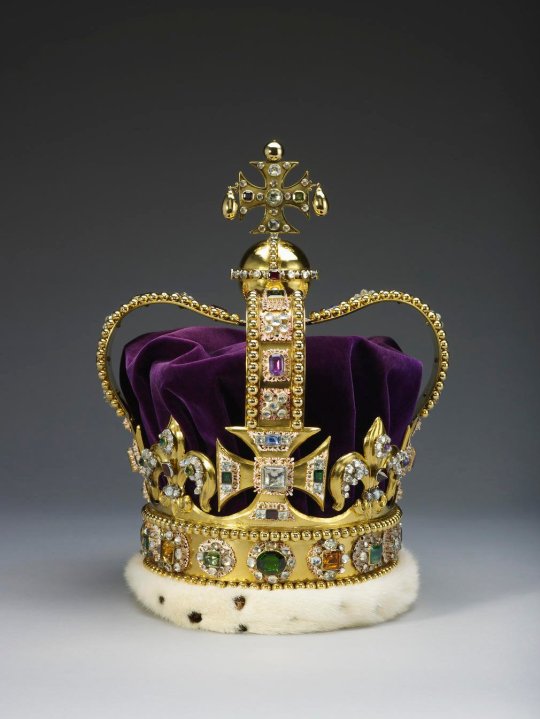

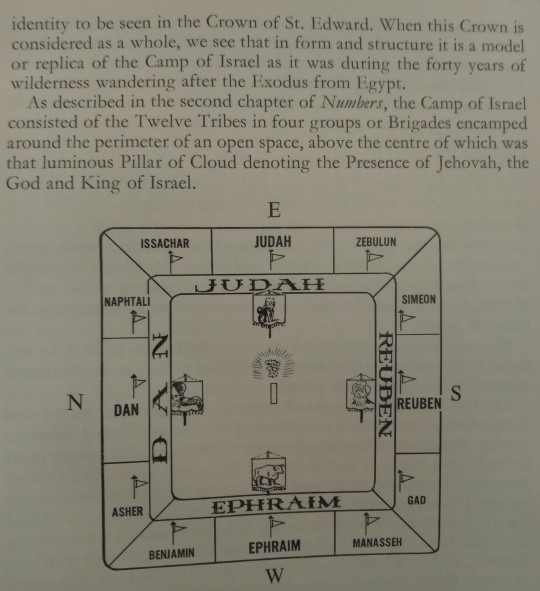
W. H. Bennett.
37 notes
·
View notes
Text

Your numbers now fit this remarkable total! One gross, if *ahem* I may use the expression
#I’m so happy that I can be like bilbo#or the twelve tribes of Israel or whatever it was#with their twelve things#was that a thing or am I just crazy lol
2 notes
·
View notes
Text
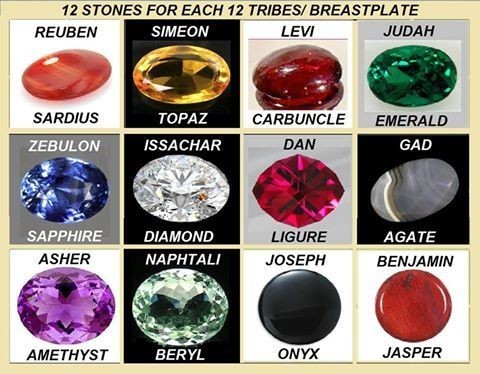
#Tribes of Israel#Stones#Precious#Gems#Twelve#Reuben#Simeon#Levi#Judah#Zebulon#Issacar#Dan#Gad#Asher#Naphtali#Joseph#Benjamin#Sardius#Topaz#Carbuncle#Emerald#Sapphire#Diamond#Ligure#Agate#Amethyst#Beryl#Onyx#Jasper#Christianity
4 notes
·
View notes
Text
BIBLE SAY ABOUR #Twelve Paidáish 42; 32 Ham bárah bháí ek hí báp ke beṭe haiṉ; ham meṉ se ek ká kuchh patá nahíṉ, aur sab se chhoṭá is waqt hamáre báp ke pás mulk i Kan‘án meṉ hai. Istisná 27;1 Aur Músá ne usí din logoṉ se tákíd karke kahá, ki 12 Jab tum Yardan pár ho jáo, to koh i Garizím par Shama‘ún, aur Láwí, aur Yahúdáh, aur Ishkár, aur Yúsuf, aur Binyamín khaṛe hoṉ, aur logoṉ ko barakat sunáeṉ. 13Aur Rúbin aur Jadd, aur Áshar, aur Zabúlún, aur Dán, aur Naftálí koh i ‘Aibál par khaṛe hokar la‘nat sunáeṉ. 14Au Ḳhurúj 28;17 Aur chár qatároṉ meṉ us par jawáhir jaṛná. Pahlí qatár meṉ yáqút i surḳh, aur pukhráj, aur gauhar i shabchirág̣ ho. 18Dúsrí qatár meṉ zumurrud, aur nílam, aur hírá. 19Tísrí qatár meṉ lasham, aur yashm, aur yáqút. 20Chauthí qatár meṉ fíroza, aur sang i sulaimání, aur zabarjad. Yih sab sone ke ḳhánoṉ meṉ jaṛe jáeṉ. 21Yih jawáhir Isráíl ke beṭoṉ ke námoṉ ke mutábiq shumár meṉ bárah hoṉ; aur angushtarí ke naqsh kí tarah yih nám, jo bárah qabíloṉ ke nám hoṉge Hizqíel 28;13 Tú ‘Adan meṉ, bág i Ḳhudá meṉ, rahá kartá thá; har ek qímatí patthar terí poshish ke liye thá, masalan yáqút i surḳh, aur pukhráj, aur almás, aur fíroza, aur saṉg i sulaimání, aur zabarjad, aur nílam, aur zumurrud, aur gauhar i shabchirág̣, aur sone se tujh meṉ ḳhátimsází aur nagínabandí kí san‘at terí paidáish hí ke roz se járí rahí Mukáshafa 21;19 Aur us shahr kí shahrpanáh kí bunyádeṉ har tarah ke jawáhir se árásta thíṉ. Pahlí bunyád yashab kí thí; dúsrí nílam kí; tísrí shabchirág kí; chauthí zumurrud kí; 20páṉchwíṉ ʻaqíq kí; chhaṭí laʻl kí; sátwíṉ sunahre patthar kí; áṭhwíṉ fíroze kí; nawíṉ zabarjad kí; daswíṉ yamaní kí; gyárahwíṉ saṉg i sumbulí kí, aur bárahwíṉ yáqút kí. Aʻmál 7;8 Aur us ne us se ḳhatne ká ʻahd báṉdhá; aur isí hálat meṉ Ibráhím se Izháq paidá húá, aur áṭhweṉ din us ká ḳhatna kiyá gayá; aur Izháq se Yaʻqúb, aur Yaʻqúb se bárah qabíloṉ ke buzurg paidá húe Matí kí Injíl 19:28 Yisúʻ ne un se kahá; Maiṉ tum se sach kahtá húṉ, ki jab Ibn i Ádam nayí paidáish meṉ apne jalál ke taḳht par baiṭhegá, to tum bhí jo mere píchhe ho liye ho, bárah taḳhtoṉ par baiṭhkar, Isráíl ke bárah qabíloṉ ká insáf karoge. Matí kí Injíl 10;2 Aur bárah rasúloṉ ke nám yih haiṉ: pahlá, Shamaʻún, jo Patras kahlátá hai, aur us ká bháí Andriyás; Zabdí ká beṭá Yaʻqúb, aur us ká bháí Yúhanná; 3Filippus, aur Bar-Tulmáí; Tomá aur Matí mahsúl lenewálá; 4Halfaí ká beṭá Yaʻqúb aur Taddí; Shamaʻún Qanʼání, aur Yahúdáh Iskariyotí, jis ne use; pakarwá bhí diyá. 5In bárah ko Yisúʻ ne bhejá, aur unheṉ hukm deke kahá, ki
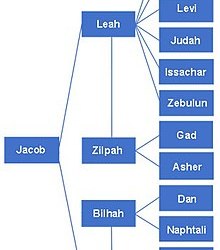
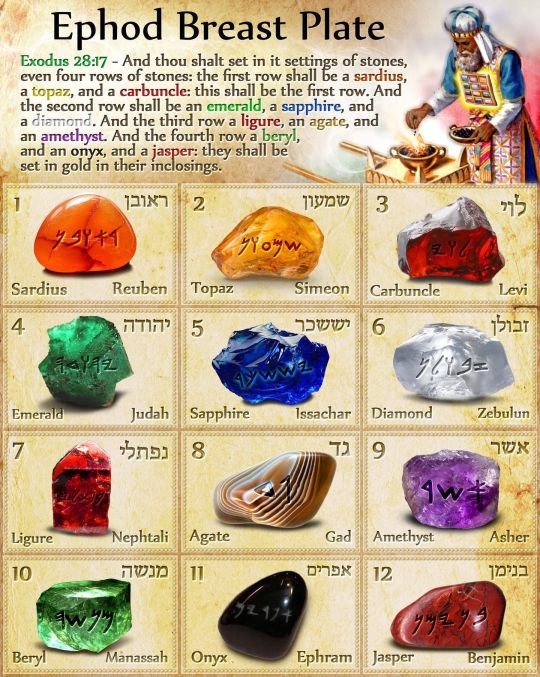
0 notes
Text
The regathering of the tribes resulting in a unified faith
The regathering of the tribes resulting in a unified faith
Vigilance and resoluteness of purpose defined the early congregations.
During the first century, the dynamic of the gospel of the kingdom being spread across the known world was one of irregular, but steady growth. One of those stages which took this growth to the next level is when the message began being shared even with those outside the accepted Jewish faith. This group of outsiders…
View On WordPress
#bible#christ#core of the bible#ezekiel 37#gentiles#heart#hellenists#Israel#jesus#Jews#Kingdom#kingdom of god#messiah#prophecy#regathering#resolute#reunification#showbread#temple#twelve tribes#Vigilance#yeshua
0 notes
Photo

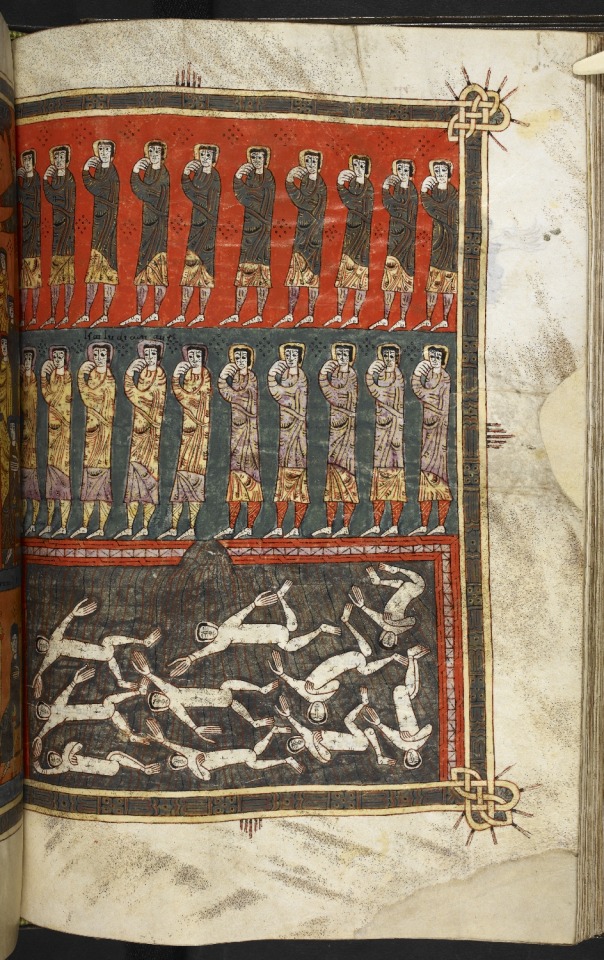
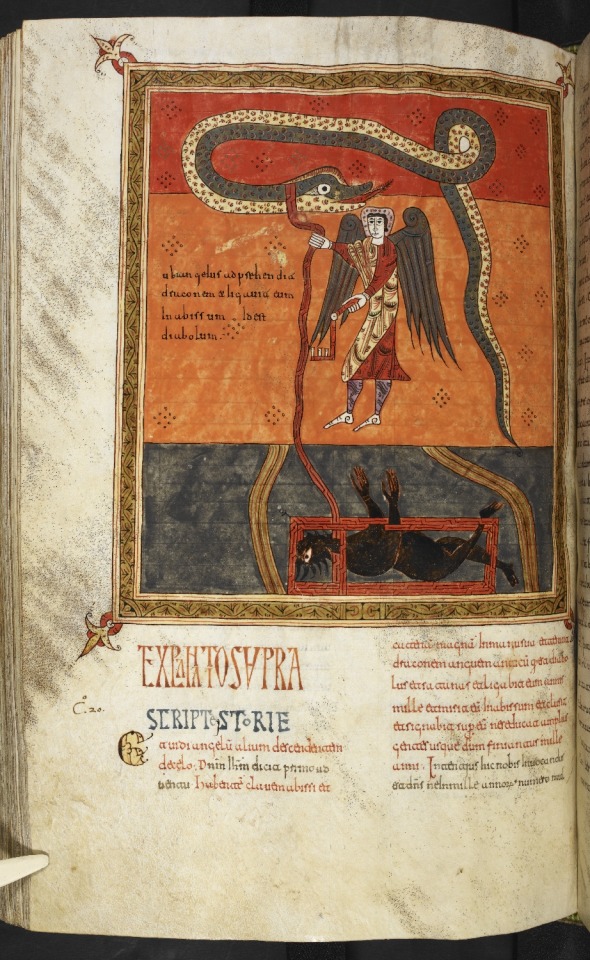
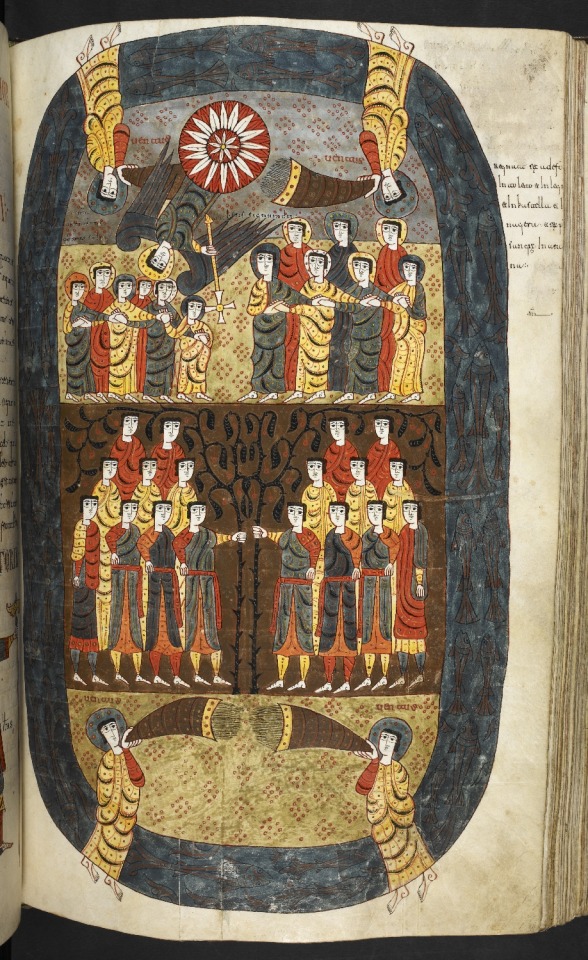
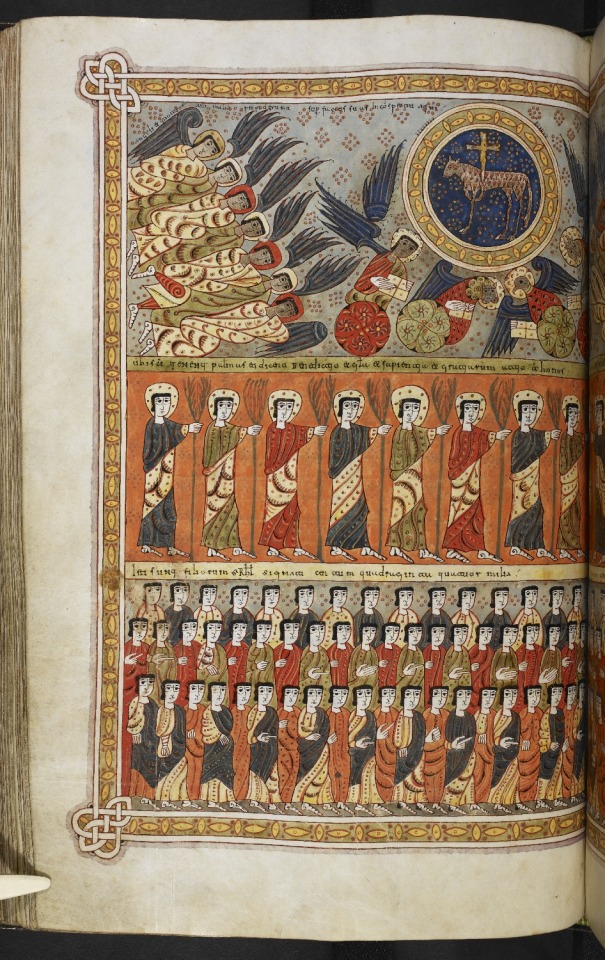

Beatus of Liébana, Commentary on the Apocalypse, Northern Spain, end of 10th century
Pages depicting the Last Judgement (top), the angel enchaining Satan (Revelation 20:1-3, middle left), angels restraining the four winds (Revelation 7:1-3, middle right), and the 144,000 chosen from the twelve tribes of Israel (Revelation 7:4-12, bottom)
British Library Catalogue of Illuminated Manuscripts (Additional 11695)
3K notes
·
View notes
Text
Etymology of TLT Character Names
Wanted to provide a fandom resource for analysis and theorizing. Since House names are explained in GTN, this list will just focus on first names. DM me for sources. Enjoy <3
Gideon
Biblical prophet, military leader, and judge, meaning "feeler," "hewer," or "one who cuts down." According to narrative, the Israelites had forgotten their god for 40 years and were punished by assaults from enemy tribes. After Israel turned back to God for aid, Gideon, an unnoteworthy Israelite, was delivered the message by an angel that he should lead Israel against its enemies. Gideon requested three miracles be done by God to prove his and God's ability to do this task, which God then performed. Gideon then completes God's tasks, including destroying an idol of Baal in the Israelite camp and displacing a much larger enemy encampment. Gideon delivered 40 years of peace for Israel during his lifetime and refused kinghood and dynasty when offered by his people. However, upon his death, the Israelites returned to worshipping Baal. A "Gideonic victory" can mean winning a battle against the odds.
Harrowhark
Harrowing - to use a piece of farming equipment to level soil, break rocks, and kill weeds to ready the dirt for seed growth. Also refers to the Harrowing of Hell, a non-Biblical, early to middle English traditional episode in which Jesus, upon death by crucifixtion, enters the Underworld to preach salvation to souls interned there before his birth, thus allowing them to enter Heaven. This tradition has been canonized by Catholic theology.
Hark - the first word of many ancient texts or announcements, meaning "listen." Biblical angelic speeches often begin with "hark."
Judith
The feminine of Judah, a Biblical Hebrew name meaning "praised," "woman of Judea/Jewess." The name Judith appears twice in the deuterocanonical Bible: once as one of Esau's wives and seperately as the titular character in the Book of Judith (a book not part of the canonized Bible). In the Book of Judith, Judith is described as a widow who uses her wit, charm, and skills of seduction to be invited to the private tent of Holofernes, the general of the enemy Assyrian army who had laid siege to her city. Judith is able to get Holofernes drunk and overpowers him, decapitates him, and steals his head to show to her city. She is of the few illustrations of the "ideal Jewish woman."
Marta
Derived from Aramaic, meaning "the daughter," "the lady," and "dedicated to Mars"
Isaac
Meaning "he laughs," referring to the father of the Biblical character's laugh of disbelief when God told him, Abraham, that his nonogenarian wife would conceive his child. Isaac is one of the three patriarchs of Israel, grandfather to the 12 tribes. When Isaac was a child, God commanded Abraham to take him up a mountain and sacrifice his child in His name. When Abraham proved his obedience, God provided a ram to sacrifice instead of Isaac. Isaac went on to marry Rebekah; though they eventually believed her to be barren, after Isaac prayed to God, Rebekah concieved twin boys, Esau and Jacob, at an old age, just as his mother did. Rebekah grew to prefer Jacob. Later, due to Sarah and Jacob's scheming, Isaac gave Esau's birthright to his second-born son, Jacob. Jacob would live on to father the twelve tribes of Israel.
Jeannemary
This specific spelling seems to be an invention of Tazmuir, but the duel components of the name are significant. Firstly, "Jean-Marie" is a French masculine name. Jeanne is the feminine form of the English "John." "Jeanne" can be traced to a Biblical Hebrew name, meaning "God is gracious." The most notable historical character of the same name is Jeanne d'Arc, a young female military leader who acted under divine guidance. Upon instruction of archangels and saints, Jeanne fought in pursuit of the coronation of Charless VII during the 100 Years War. Her leadership led to multiple military victories but was punctuated by multiple failures. The unsuccessful relief of a besieged city led to her capture and deliverance to the English, who tried her for blasphemy by wearing men's clothes and refusing submission to Church authority. Found guilty, Jeanne was burned at the stake at 19.
Mary is the most notable feminine name of the Christian Bible, referring predominately to Mary, mother of Jesus Christ, Mary Bethany, and Mary Magdalene, a female disciple of Jesus. Mary was born immaculately - without sin - so that she would be a pure vessel to carry Jesus, who she concieved as a virgin. Mary Bethany was a friend of Jesus and sister to Lazarus. She was deeply emotional about her brother's passing, which persuaded Jesus to resurrect her brother from the grave. Mary Magdalene was a probably wealthy Jewish woman who aided Jesus' teachings. As a loyal apostle, she was a witness at both His crucifixtion and resurrection.
Coronabeth
"Coronabeth," like "Jeannemary," is an obvious Tazmuir invention. "Corona" refers to both the part of the body that resembles a crown and to a colored circular frame around a stellar body, usually caused by its atmosphere.
"Beth" is derived from both "Elizabeth" ("God is my oath") and "Bethany" ("House of Figs"). The suffix -beth comes from Hebrew origins, meaning "house."
Ianthe
From the Ancient Greek, meaning "violet flower" or "she who delights." She was one of the 3,000 water-nymphs called Oceanides, daughters of the Titans. Ianthe and her sisters served as a companion to Persephone when she was in Hades. She is also a character in Ovid's Metamorphosis as the beautiful fiancé to Iphis, a character who has her/his gender changed by the goddess Isis.
Note on the Tridentarii: Coronabeth was almost called "Cainabeth" and Ianthe "Abella" after the two Biblical brother characters, Cain and Abel. In the narrative, God preferred Abel's divine sacrifices and loved him more than his brother. In a jealous rage, Cain killed Abel and hid from his crime, his family, and his God. When God asked him, "Where is your brother?" Cain returned, "I am not my brother's keeper." Angered, He cursed Cain with the Mark of Cain. Separately, the first fratricide cursed the Earth to never turn over its vegetation to Cain, the first murderer. His Mark symbolizes him as a wanderer, a person who belongs nowhere; however, it also protects him from the curses and abuse of others, returning scorned words and abuses back to the harasser seven-fold. Though Coronabeth and Ianthe received their names elsewhere, the lusty, jealous, murderous themes of Cain and Abel's narrative were present at the time of their creation and thus should not be dismissed.
Naberius
Though I can't find the meaning of the name, "Naberius" is rooted in Latin. It first appears in Johann Weyer's 1583 manuscript, "The Deceptions of Demons." Naberius, or "Cerberus" - relation to the same named three-headed dog of Ancient Greek theology unknown - is a Marquess of Hell, directing 19 legions of demons. He provides cunningness of the arts, sciences, and rhetoric in man through vocal instruction and can restore lost honors and dignities. His semblance is of a man with three dog heads or a raven.
Abigail
Biblical Hebrew name meaning "my father's joy," "my father is exalted." Abigail is a Biblical figure, being the third wife of King David and mother to one of his sons. She is a strong believer in the prophecy of David's ascension and his great dynasty. Abigail is considered to be one of the seven Jewish woman prophets and, in the Talmud, of the four women "surpassing beauty in this world." The word "Abigail" can refer nonspecifically to a waiting woman or handmaiden.
Palamedes
There are two notable historical fiction characters that share the name "Palamedes." Palamades was an ancient Grecian prince who joined the battle of Troy, according to the Aenid. After Paris had taken Helen to Troy, Palamedes was sent as envoy from Agamemnon to Odysseus because the latter man had previously vowed to defend Helen's marriage. Odysseus, however, did not want to attend the war, but Palamedes was successful in proving his fitness for war and ultimately delivering Odysseus to Troy. According to some traditions, Odysseus never forgave Palamedes for this and eventually killed him. In the Apology, Plato characterizes Socrates as looking forward to death in order to speak with Palamedes.
Secondly, Sir Palamedes is a knight of the round-table, a Saracen pagan (or probable Muslim) who converted to Christiantiy later in life. He is introduced dueling another knight, Sir Tristan, for a lady's hand, which he loses; these two fight several more times but with unclear victories, leading to a hate-love relationship deepened by their love for the same woman (the woman of their first duel). Many stories have Palamedes as the hunter of the Questing Beast, a fearsome animal the target of many a fruitless hunt. After years of pursuit, it is ultimately his freedom from wordly material granted by his Christian conversion that allows him to slaughter the beast. He remains loyal to Sir Lancelot after his affair with Queen Guinevere is revealed and follows Lancelot to France. Sir Palamedes is later killed by Sir Gawain. Except in matters concerning his love and Sir Tristan, where he often lost control of his anger, he was one of the most chivalrous and honorable knights.
Note: The story of Sir Palamedes, as a product of Arthurian legend, is nearly impossible to summarize properly due to its expansiveness and document fragmentation. If interested in the topic (such as the wink wink homo-erotic love-hate relationship he has with Sir Tristan,) i encourage futher research.
Camilla
"Camilla" is the feminine of "Camillus," a Latin term meaning acolyte, a helper of the Priest during religious processionals and ceremonies. In the Aeneid, Camilla is a queen gifted to the goddess Diana as a handmaiden who became a virginal Amazon warrior.
Dulcinea
"Dulcinea" is a name created by Don Quixote for his character, derivative of the Spanish word "dulce" meaning "sweetness." Princess Dulcinea was invented in the titular character's mind to be the most perfect, beautiful, and regal woman since he believes chivalry requires such a lady of him. To refer to a loved one as like Dulcinea is to express your idealistic devotion and love to her.
Protesilaus
"Protesilaus" may come from the Ancient Greek "protus" for "first." Protesilaus was a hero in the Iliad. According to an oracle, the first Greek to set foot on land after sailing to fight the Trojan War would die. Protesilaus was the first to dare step off ship; he sealed his fate then, later dying in combat. His widow was so devoted to his memory that she built a bronze statue with his likeness. She later self-emulated when the statue was burned and destroyed.
Silas
Latin in origin, "Silas" means "of the forest." Notable figures named "Silas" include first century St. Silas, who accompanied St. Paul on his second mission. He is credited as co-author of the two letters to Thessalonians and the Book of Hebrews; however, authoriship is disputed. St. Silas is sometimes depicted with broken chains due to an episode in which an earthquake freed him and St. Paul from imprisonment.
Colum
From the Gaelic word for "dove"
#tlt#gideon nav#harrowhark nonagesimus#judith deuteros#marta dyas#isaac deuteros#jeannemary chatur#abigail pent#magnus quinn#dulcinea septimus#protesilaus ebdoma#silas octakiseron#colum asht#ianthe tridentarius#coronabeth tridentarius#naberius tern#palamedes sextus#camilla hect#mine
228 notes
·
View notes
Text
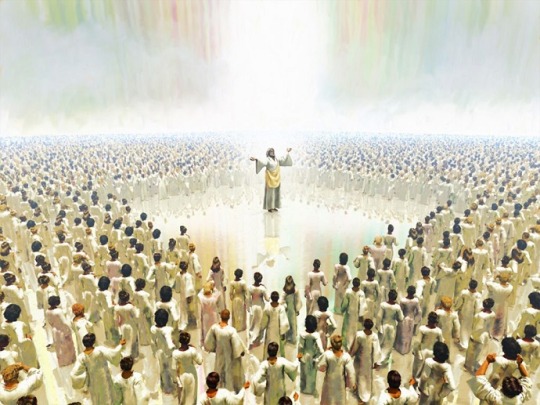
The Sealed of Israel
1 After (with) these things I saw four angels standing upon the four corners (quarters, angles, latin-angulos-corners root is angle) of the earth, holding the four winds of the earth, so that no wind would blow upon the earth, nor upon the sea, nor upon any tree. 2 And I saw another angel, having ascended away from the rising of the sun (the east), having the seal of the living God; and he cried (latin-clamavit-cried possibly like clamored=shout loudly) with a great voice to the four angels to whom had been given them to harm (this word has to do with committing injustice, latin-nocere-hurt) the earth and the sea, 3 Saying, Do not harm the earth, nor the sea, nor the trees, until we shall have sealed the bond-slaves of our God upon their foreheads (latin-frontibus-foreheads, greek-metopon which is meta-ops, ops is eye and meta is with/after thus with or after the eyes).
4 And I heard the number of the ones having been sealed, a hundred forty four thousand (144, 000), having been sealed from out of every tribe (tribe here is feminine) of the sons of Israel;
5 From out of the tribe of Judah, twelve thousand (12, 000) having been sealed; from out of the tribe of Reuben, twelve thousand (12, 000); from out of the tribe of Gad, twelve thousand (12, 000); 6 From out of the tribe of Asher, twelve thousand (12, 000); from out of the tribe of Naphtali, twelve thousand (12, 000); from out of the tribe of Manasseh, twelve thousand (12, 000); 7 From out of the tribe of Simeon, twelve thousand (12, 000); from out of the tribe of Levi, twelve thousand (12, 000); from out of the tribe of Issachar, twelve thousand (12, 000); 8 From out of the tribe of Zebulun, twelve thousand (12, 000); from out of the tribe of Joseph, twelve thousand (12, 000); from out of the tribe of Benjamin, twelve thousand (12, 000) having been sealed.
9 After (with) these things I looked, and behold, a great (much, many) multitude, which no one was able to number it; from out of every ethnicity, and tribes, and peoples, and tongues (glosson), standing in the sight of the throne and in the sight of the Lamb, having been clothed with white robes and palm branches (greek-phoinikes, latin-palmae) in their hands; 10 And crying with a great voice, saying, Salvation to our God sitting upon the throne and to the Lamb! 11 And all the angels stood around the throne, and the elders (latin-seniorum) and the four living creatures, and they fell in the sight of the throne upon their faces and worshipped God, 12 Saying, Amen! Blessing and glory and wisdom and thanksgiving and value (honor) and power and strength to our God unto the ages of the ages! Amen.
13 And one from out of the elders answered, saying to me, These having been clothed with the white robes, who are they? And from where have they come? 14 And I said to him, my lord, you know. And he said to me, These are those coming from out of the great tribulation and they washed their robes and made them white in the blood of the Lamb. 15 Because of this, they are in the sight of the throne of God and serve Him day and night in His temple; and He sitting upon the throne will tabernacle (encamp, dwell as in a tent) upon them. 16 They will not hunger any more, neither will they thirst anymore, nor shall the sun fall upon them, nor any scorching (burning) heat; 17 Because the Lamb who is in the midst (middle) of the throne will shepherd them, and He will guide them upon living fountains of waters, and God will wipe away every tear from out of their eyes.
— Revelation 7 | Literal Emphasis Translation (LET)
The Literal Emphasis Bible is in the public domain.
Cross References: Exodus 12:23; Exodus 28:21; Leviticus 23:40; Numbers 1:5; Numbers 1:36; Numbers 26:20; Psalm 3:8; Psalm 23:1-2; Psalm 121:5-6; Isaiah 1:18; Isaiah 11:12; Isaiah 25:8; Isaiah 41:2; Isaiah 49:10; Jeremiah 49:36; Ezekiel 9:4; Ezekiel 9:6; Ezekiel 37:27; Daniel 7:16; Daniel 11:35; Zechariah 10:8; John 1:14; Acts 3:12; Romans 11:36; 1 Corinthians 14:16; Revelation 4:4; Revelation 4:6; Revelation 9:16; Revelation 12:10
#Israel#twelve tribes#144000 sealed#praise#great multitude#Revelation 7#Book of Revelation#New Testament#LET#Literal Emphasis Translation#Holy Bible
17 notes
·
View notes
Text
Deuteronomy Chapter 27
This chapter is about the altar & curses on Mount Ebal. This chapter tells about how the ancient Israelites built an altar on Mount Ebal. The curses have a call-and-response-type deal.
This chapter is about the altar & curses on Mount Ebal. This chapter tells how the Israelites built an altar on Mount Ebal. And the curses, in the text, have a call-and-response-type deal. We have a feeling this chapter might be where “And the church says Amen” comes from. But we can’t confirm this. It’s a working theory we have. Enjoy the read.
Moses & the elders of Israel told the people:…
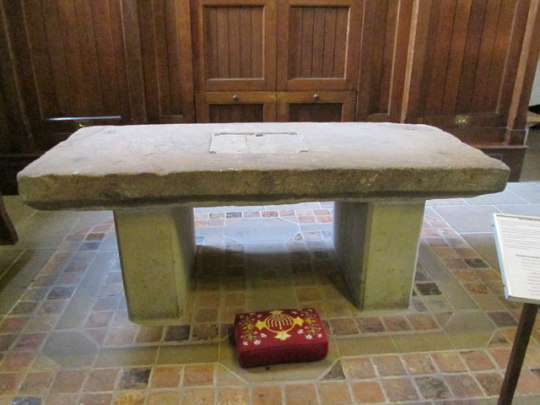
View On WordPress
#altar#bible#Curses#Deuteronomy 27#Jordan River#Judaism#Levites#Mount Ebal#Old Testament#Promised Land#Twelve Tribes of Israel
0 notes
Text
If more than one option applies to you, feel free to specify.
459 notes
·
View notes
Text
There was never a Palestinian state
Let’s be clear: Before Israel, there was a British mandate, not a Palestinian state. -Before the British Mandate, there was the Ottoman Empire, not a Palestinian state. -Before the Ottoman Empire, there was the Islamic state of the Mamluks of Egypt, not a Palestinian state. -Before the Islamic state of the Mamluks of Egypt, there was the Ayubid Empire, not a Palestinian state. Godfrey IV of Boulogne, known as Godfrey de Bouillon, conqueror of Jerusalem in 1099 -Before the Ayubid Empire, there was the Frankish and Christian Kingdom of Jerusalem, not a Palestinian state. -Before the Kingdom of Jerusalem, there was the Umayyad and Fatimid empires, not a Palestinian state. -Before the Umayyad and Fatimid empires, there was the Byzantine empire, not a Palestinian state. -Before the Byzantine Empire, there were the Sassanids, not a Palestinian state. -Before the Sassanid Empire, there was the Byzantine Empire, not a Palestinian state. -Before the Byzantine Empire, there was the Roman Empire, not a Palestinian state. -Before the Roman Empire, there was the Hasmonean state, not a Palestinian state. -Before the Hasmonean state, there was the Seleucid, not a Palestinian state. -Before the Seleucid empire, there was the empire of Alexander the Great, not a Palestinian state. -Before the empire of Alexander the Great, there was the Persian empire, not a Palestinian state. -Before the Persian Empire, there was the Babylonian Empire, not a Palestinian state. -Before the Babylonian Empire, there were the Kingdoms of Israel and Judah, not a Palestinian state. -Before the Kingdoms of Israel and Judah, there was the Kingdom of Israel, not a Palestinian state. -Before the kingdom of Israel, there was the theocracy of the twelve tribes of Israel, not a Palestinian state. -Before the theocracy of the twelve tribes of Israel, there was an agglomeration of independent Canaanite city-kingdoms, not a Palestinian statehood. Actually, in this piece of land there has been everything, EXCEPT A PALESTINIAN STATE!
178 notes
·
View notes
Text
Just because I can go to twelve now lol
126 notes
·
View notes